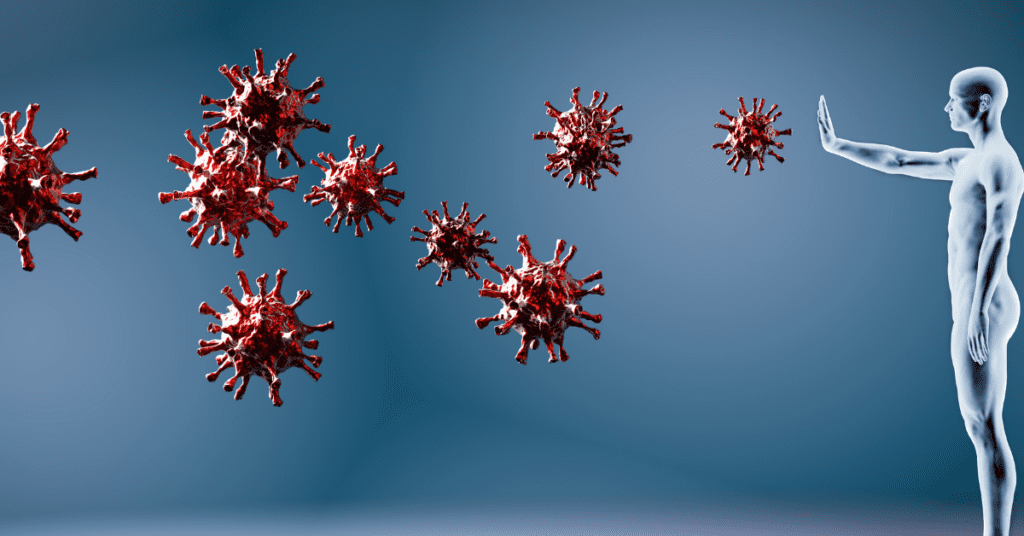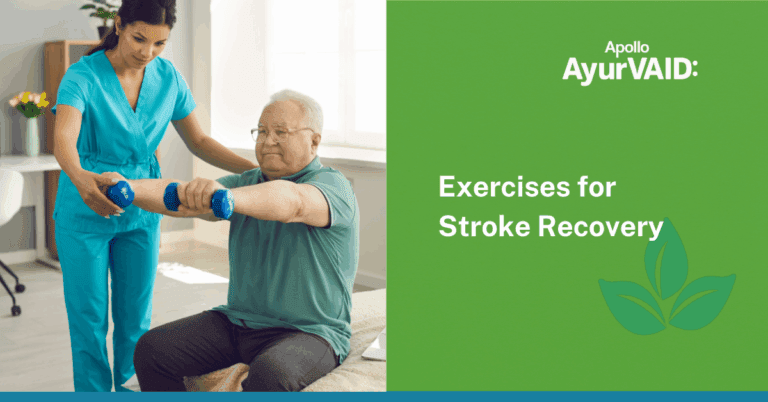In the ongoing battle against COVID-19, exploring holistic approaches to prevention and treatment is gaining significance. Ayurveda offers a unique perspective on maintaining overall well-being. While Ayurveda should not be used as an over-the-counter or simply home remedy, personalized consultation with an Ayurveda doctor should be sought along with conventional medical advice, it can complement existing preventive measures. Here are some Ayurveda strategies to prevent and treat COVID-19:

Prevention
Boosting Immunity
Ayurveda emphasizes bolstering the immune system to defend against infections. Key herbs like Ashwagandha, Tulsi (Holy Basil), and Turmeric are known for their immune-boosting properties. Incorporating these herbs into daily routines through teas or supplements may help fortify the body’s defenses. Regular exercise, sound sleep, and maintaining a healthy routine are essential.
Balanced Diet
Ayurveda emphasizes a well-balanced diet tailored to individual constitutions (doshas). A diet rich in fresh fruits, vegetables, and whole grains can provide essential nutrients. Spices like cumin, coriander, and fennel, can aid digestion and support overall health.
Hygiene Practices
Ayurveda places great importance on hygiene to prevent the spread of diseases. Practices like oil pulling, nasal irrigation with saline solutions, and regular hand washing align with Ayurvedic principles and contribute to maintaining cleanliness. Wearing a mask in public or covering your face while coughing are primary hygiene practices.
Treatment
Herbal Formulations
Ayurveda offers various herbal formulations believed to have antiviral and immune-boosting properties. Triphala, an amalgamation of three fruits, is known for its detoxifying effects, while Guduchi is praised for its immune-enhancing qualities. Consulting with an Ayurvedic practitioner can help to use formulations personalized to individual needs.
Pranayama and Yoga
Breathing exercises (pranayama) and yoga can enhance respiratory health and overall well-being. Practices like Anulom Vilom (alternate nostril breathing) and Bhramari (bee breath) are believed to improve lung capacity and strengthen the respiratory system, which is crucial in preventing respiratory infections.
Stress Management
Ayurveda acknowledges the role of mental health in overall well-being. Stress weakens the immune system, making the body more susceptible to infections. Meditation, mindfulness, and Panchakarma can help manage stress levels and contribute to overall health.

Important Considerations
Consultation with Ayurvedic Practitioners
Individuals should consult with qualified Ayurvedic practitioners to receive personalized advice based on their unique constitutions and health conditions. Ayurvedic treatments are not one-size-fits-all and care should be taken to avoid self-medicating.
Integration with Conventional Medicine
Ayurveda is more than just a home remedy approach rather it is a major support to conventional medical interventions. Integrating Ayurvedic practices with evidence-based medical care can offer a more comprehensive approach to health.
Ayurveda provides a holistic framework for preventive and supportive health practices for Covid-19 even today. By incorporating Ayurvedic principles into daily life, individuals can strive for a balanced and resilient system that may contribute to overall well-being. However, it is crucial to approach these strategies with an informed and integrative mindset, ensuring collaboration with healthcare professionals for a comprehensive health plan.
At Apollo AyurVAID, our treatment involves a personalized, patient-centric approach, integrating Ayurvedic principles into a comprehensive medical management plan. This approach effectively provides symptomatic relief and promotes sustained respiratory health.






